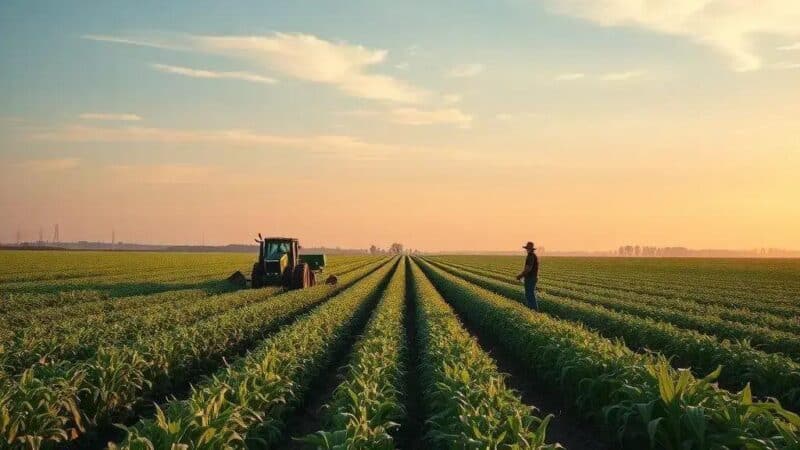H-2A visas rule changes, coupled with tougher immigration enforcement, have the Labor Department warning of potential food shortages and farm disruption. Who will harvest America’s fields if the workforce dwindles—and can policy fix it in time?
Labor Department admission and details of the H-2A rule change
The Labor Department recently made a significant admission. They warned that new rules for the H-2A visa program could create serious issues. These issues might lead to food shortages and make farming much tougher. The H-2A program allows U.S. farms to hire temporary workers from other countries. These workers fill jobs that American citizens often do not take.
Understanding the H-2A Rule Changes
The new rules aim to better protect these foreign workers. However, they also make it harder for farms to get the labor they need. For example, some changes affect how quickly farms can hire workers. Other changes deal with worker housing and wages. These updates could slow down the hiring process. This means fewer workers might be available when crops are ready for harvest.
The department’s own review highlighted these risks. It found that stricter rules could reduce the number of available farm workers. This reduction could severely impact farms, especially during busy seasons. The goal is to balance worker protection with the needs of agriculture. Yet, finding this balance is proving quite challenging. The department is now studying how these changes might affect food prices and overall supply.
Projected effects on crop production, supply shocks and consumer prices
Changes to the H-2A visa program could really shake things up for farms. If fewer workers are available, farmers might not plant or harvest as many crops. This means less fresh produce, like fruits and vegetables, would make it to our tables. Imagine fields full of ripe food that no one can pick. That’s a real worry for many farmers across the nation.
Impact on Food Supply
When farms produce less, it creates a ‘supply shock.’ This means there isn’t enough food to meet everyone’s needs. Grocery stores might have fewer options, or certain items could become harder to find. This isn’t just about a few farms; it could affect the entire food system. We rely on these workers to bring much of our food from the fields to our homes.
Rising Consumer Prices
What happens when there’s less of something people want? Usually, the price goes up. If the supply of fresh food drops because of labor shortages, consumers will likely pay more. Your weekly grocery bill could get bigger. This means families might have to spend more money just to buy the same amount of food. The Labor Department is concerned these changes could make food more expensive for everyone.
Why American workers aren’t replacing farm labor and policy responses
You might wonder why American workers aren’t stepping up to fill these farm jobs. It’s a fair question. The truth is, farm labor is incredibly tough. It often means long hours under the hot sun or in cold weather. The work is very physical, like bending, lifting, and carrying heavy loads. Many of these jobs are also seasonal. This means they don’t offer steady, year-round paychecks. For many American workers, other jobs seem more appealing. These jobs might offer better pay, more stable hours, or less demanding work.
Challenges of Farm Work
Also, farm work often requires moving from place to place. Workers follow the harvest across different states. This makes it hard to settle down or have a regular home life. The pay, while regulated, might not compete with other industries. So, even with job openings, finding enough local workers for these specific roles remains a big challenge. This is why programs like the H-2A visa are so important for farms.
Policy Solutions and Future Steps
What can be done about this? Policymakers are looking at different solutions. One idea is to make the H-2A program more efficient. This would help farms get workers faster without too many delays. Another approach involves looking at broader immigration reform. The goal is to create a more stable and legal workforce for agriculture. Some also talk about making farm jobs more attractive. This could mean better wages, housing, or benefits. Finding the right balance is key. It needs to protect workers while also ensuring our farms can keep producing the food we all need.
Fonte: Fortune.com








